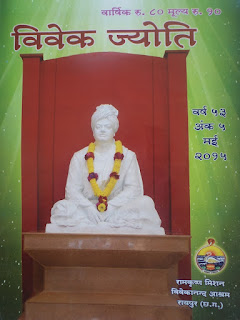Today, India PM Narendra Modi is
in Bangladesh and he will be freezing an agreement over resolving land disputes
by exchanging land pockets (enclaves)
with Bangladesh. It will be a historic decision which will indeed
prevent infiltration, disputes and inconvenience to people from both sides.
Despite being a Modi fan, ever since I learnt about this plan I have
been a little disturbed about it. What is the cause of concern? Before I come
to that, let us understand what are these "enclaves" which the two
countries will be exchanging?
Enclaves are small pockets of
land belonging to a country which are completely surrounded by land of another
country. The most common enclave in a way is the Vatican City which is
completely surrounded by Italy. India has about 106 enclaves inside Bangladesh
while Bangladesh has 92 enclaves inside India. It results in infiltration and
extreme inconvenience to the people living inside these enclaves. To make it
more complex, 24 of these enclaves are actually "enclaves inside
enclaves"! These enclaves came into being around 300 years ago during wars
between the Mughals and the King of Cooch Behar. Mughals won over certain
regions but could not defeat certain local Cooch Behar Jamindars from their
lands; similarly Cooch Behar King defeated Mughal forces but could not evict
their soldiers from certain pockets and hence by the time a treaty was made,
these enclaves came into being. Later, since East Bangladesh went to Pakistan,
there could be no solution to this problem because of India-Pakistan rivalry
and wars. Now let us see my dilemma about the land-swap deal.
The problem with the land-swap
deal is that India is giving away more land to Bangladesh than she is receiving
in return! Although the land size India is losing is only around 40 square kms.
But still, our "mother India" is going to become smaller and it is an
emotional issue for the patriotic population.
If we think of pure economics,
this decision does not make sense. Why would someone give you a land worth
hundred million and ask for another piece of land worth ninety; unless one's
life or something extremely critical depended on it? I am sure even in the
stone-age human beings did not do "barters" in this manner. So why
are we doing it now?
If we think of the two nations,
Bangladesh being one of the most densely populated nations needs land more than
a big nation like India does. So Bangladesh may be able to gain more than India
does by swapping land.
In international politics, such
land-swap deals are associated with "monetary compensations". If we
have to give some land to Bangladesh in order to simplify matters; we could
take compensation. Some news reports say that Bangladesh was ready to pay compensation
for the extra land it has to receive, but India said she won't take any. It
displays a kind of "Big Brother" approach India naturally plays in
the region. Although, India seems to have been blind eye towards how Bangladeshi
political parties use the same "Big Brother syndrome" to build a
public anger against India (to garner votes)! India sees such large heart
gestures as her natural role; but the same largess is seen with suspicion
amidst conspiracy theories about India being a ‘hidden aggressor’! So far
India's foreign policies have not done anything to quell these fears. India
could have been less emotional and more economics driven in order to appear like
a neutral force in the region. But maybe then India won’t be like India!
There is another concern about
the deal according to which more than fifty thousand villagers from both sides
will be given an option to choose nationalities. I guess logically more people
will choose to become part of India (since it is more economically prosperous),
resulting in increase in population which is undesirable. There should have
been a better way to identify nationalities.
I know that we can't really
blame PM Narendra Modi government for this decision. In the past many other PMs
including Indira Gandhi tried to do the same deal with Bangladesh but failed.
PM Modi in a way is exerting his "strong" image when he is solving a
"300 years old problem" which all past governments failed to solve.
Still, India giving away more land than it receives does not make sense to me.
I also understand that Indian
governments “gifting away” lands to other nations is not new. Way back in 1974,
Indira Gandhi virtually gifted an island of Katchatheevu to Sri Lanka. In an
article titled “Island
Lost” (S. Raja, New Indian Express, 10 Sep, 2013) for example, the
journalist writes that Indira Gandhi gifted away the island as if it were her “family
silver”. So perhaps Bangladesh deal’s loss is not a first or nothing new; still
I think it is not a rational decision. I call it a failure of India’s diplomacy
rather than success of it.
My solution is simple. If India
accepts monetary compensation for the lost land, it will not be enough. It will
appear like a nation is "selling" land for money. I think Bangladesh
should make up for the loss India is incurring by exchanging enclaves. Give us
another forty square kilometers anywhere along the border you find suitable. Is
this too much to demand?
What do you think about it? Let
me know through your comments.



